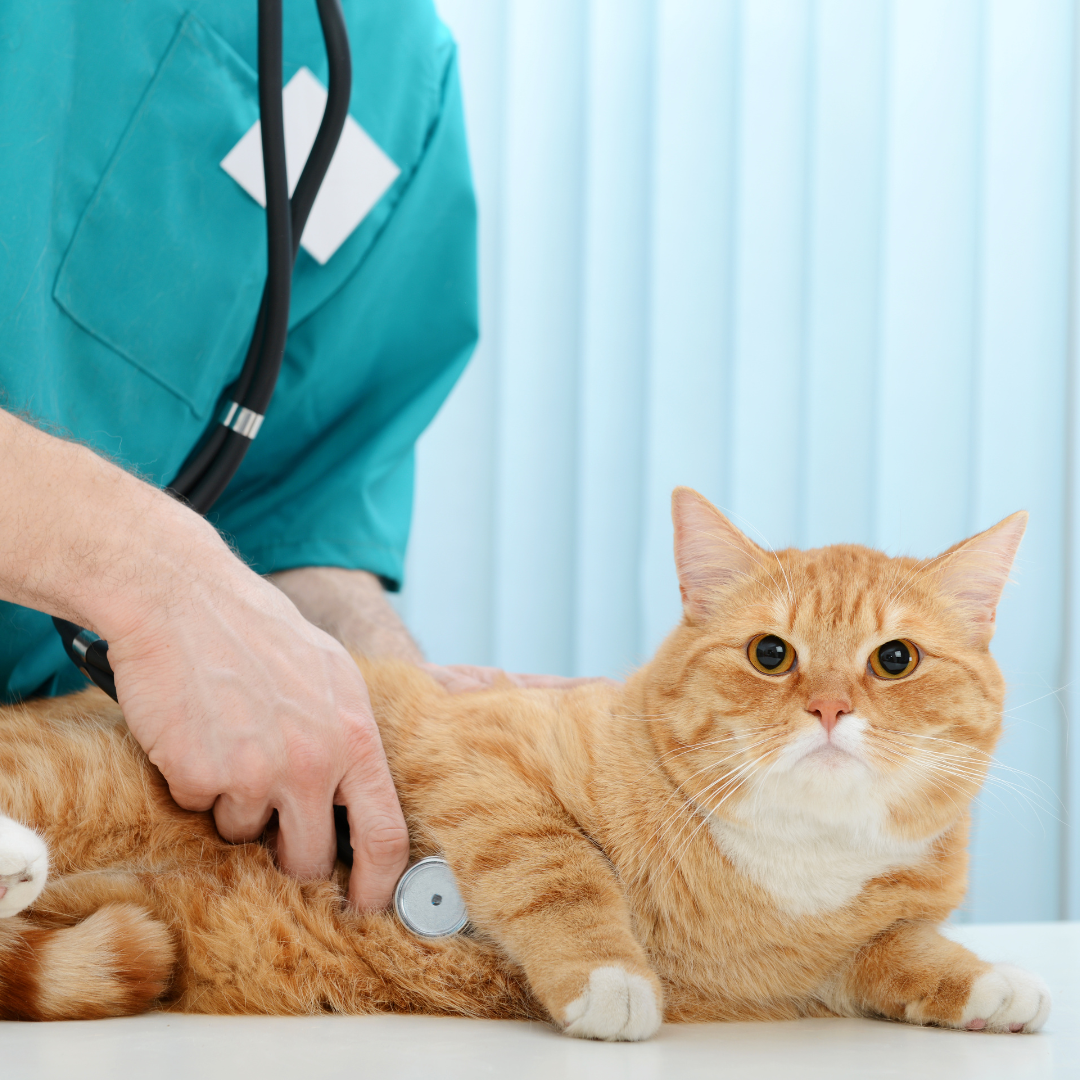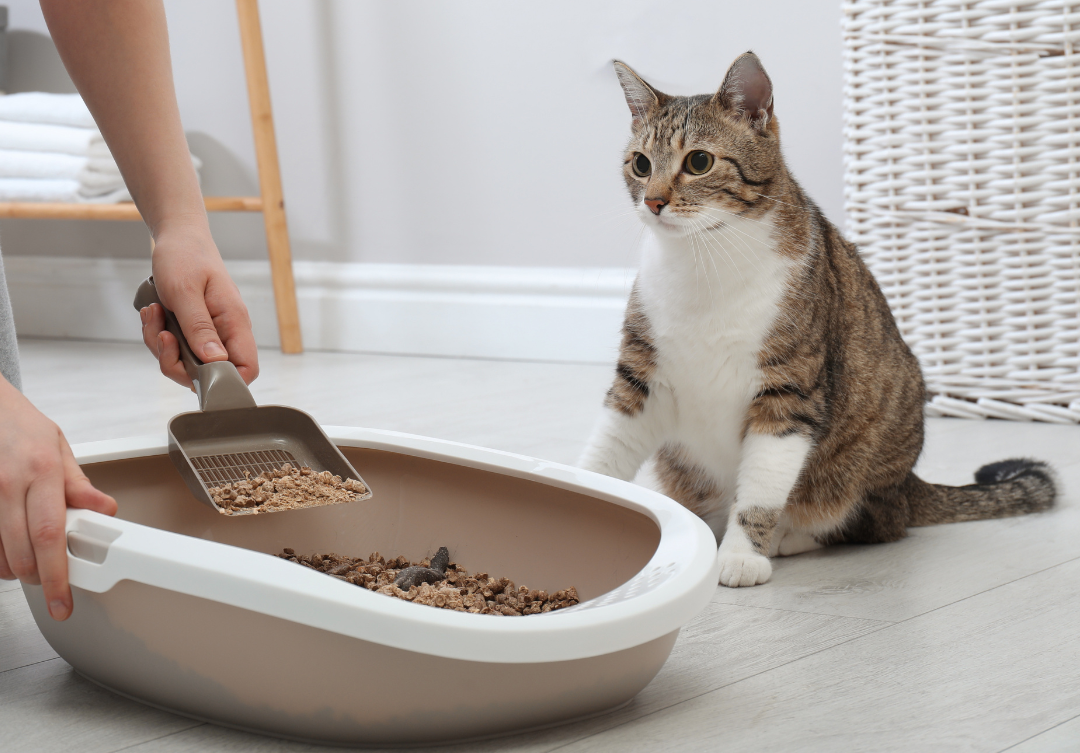Many cat owners face the problem of strong waste odors, which can make the home unpleasant, especially in enclosed spaces. This issue is usually caused by several factors such as poor nutrition, digestive problems, or inadequate litter box hygiene. Poor-quality food, especially those with fillers and additives, often leads to more odorous cat waste. Additionally, poor gut health in cats, such as from parasites or digestive issues, also contributes to stronger odors.
Here are some simple steps you can take to reduce this unpleasant smell:
1. Choose High-Quality Food
The quality of food given to your cat affects the smell of their waste. Foods rich in high-quality animal proteins, such as chicken or salmon, and low in carbohydrates can help reduce odor. Avoid foods with many fillers like corn or low-quality meat products, as these can lead to more odorous waste (The Cat Bandit Blog) (FelineLiving.net).
2. Add Probiotics to the Diet
Probiotics are beneficial bacteria that can help improve your cat’s digestive health. Adding a probiotic supplement to your cat’s diet can reduce waste odor by improving digestive function and balancing gut bacteria. You can find special probiotic supplements for cats at pet stores or consult a veterinarian (The Cat Bandit Blog).
3. Provide Cat Food Containing Yucca Schidigera
Cat food containing Yucca schidigera can help reduce waste odor. Yucca schidigera contains saponins that reduce ammonia production in the cat’s digestive tract. Ammonia is a major cause of strong waste odors. By reducing ammonia, the waste odor can be minimized, making your home more comfortable. Look for cat food with Yucca schidigera listed as an ingredient (FelineLiving.net).
4. Clean the Litter Box Regularly
A clean litter box is crucial for controlling odor. Ensure the litter box is cleaned daily and completely replaced at least once a month. Opt for 'clumping' litter types that absorb moisture and reduce odor more effectively (FelineLiving.net).
5. Use Air Fresheners or Odor Neutralizers
Placing an air freshener near the litter box or using specialized odor-neutralizing filters can help keep your home free from strong smells.
6. Check Your Cat’s Health
If your cat’s waste smells stronger than usual, it may indicate a health problem such as parasites or digestive issues. Consult a veterinarian immediately if you suspect something is wrong (The Cat Bandit Blog).
By implementing these steps, you can effectively reduce cat waste odors and improve both your cat’s quality of life and the cleanliness of your home. Proper hygiene and health care for your cat will ensure your home remains fresh while providing the comfort you and your pet deserve.

Many cat owners face the problem of strong waste odors, which can make the home unpleasant, especially in enclosed spaces. This issue is usually caused by several factors such as poor nutrition, digestive problems, or inadequate litter box hygiene. Poor-quality food, especially those with fillers and additives, often leads to more odorous cat waste. Additionally, poor gut health in cats, such as from parasites or digestive issues, also contributes to stronger odors.
Here are some simple steps you can take to reduce this unpleasant smell:
1. Choose High-Quality Food
The quality of food given to your cat affects the smell of their waste. Foods rich in high-quality animal proteins, such as chicken or salmon, and low in carbohydrates can help reduce odor. Avoid foods with many fillers like corn or low-quality meat products, as these can lead to more odorous waste (The Cat Bandit Blog) (FelineLiving.net).
2. Add Probiotics to the Diet
Probiotics are beneficial bacteria that can help improve your cat’s digestive health. Adding a probiotic supplement to your cat’s diet can reduce waste odor by improving digestive function and balancing gut bacteria. You can find special probiotic supplements for cats at pet stores or consult a veterinarian (The Cat Bandit Blog).

3. Provide Cat Food Containing Yucca Schidigera
Cat food containing Yucca schidigera can help reduce waste odor. Yucca schidigera contains saponins that reduce ammonia production in the cat’s digestive tract. Ammonia is a major cause of strong waste odors. By reducing ammonia, the waste odor can be minimized, making your home more comfortable. Look for cat food with Yucca schidigera listed as an ingredient (FelineLiving.net).
4. Clean the Litter Box Regularly
A clean litter box is crucial for controlling odor. Ensure the litter box is cleaned daily and completely replaced at least once a month. Opt for 'clumping' litter types that absorb moisture and reduce odor more effectively (FelineLiving.net).
5. Use Air Fresheners or Odor Neutralizers
Placing an air freshener near the litter box or using specialized odor-neutralizing filters can help keep your home free from strong smells.
6. Check Your Cat’s Health
If your cat’s waste smells stronger than usual, it may indicate a health problem such as parasites or digestive issues. Consult a veterinarian immediately if you suspect something is wrong (The Cat Bandit Blog).
By implementing these steps, you can effectively reduce cat waste odors and improve both your cat’s quality of life and the cleanliness of your home. Proper hygiene and health care for your cat will ensure your home remains fresh while providing the comfort you and your pet deserve.


Interesting info. Thank you for sharing!